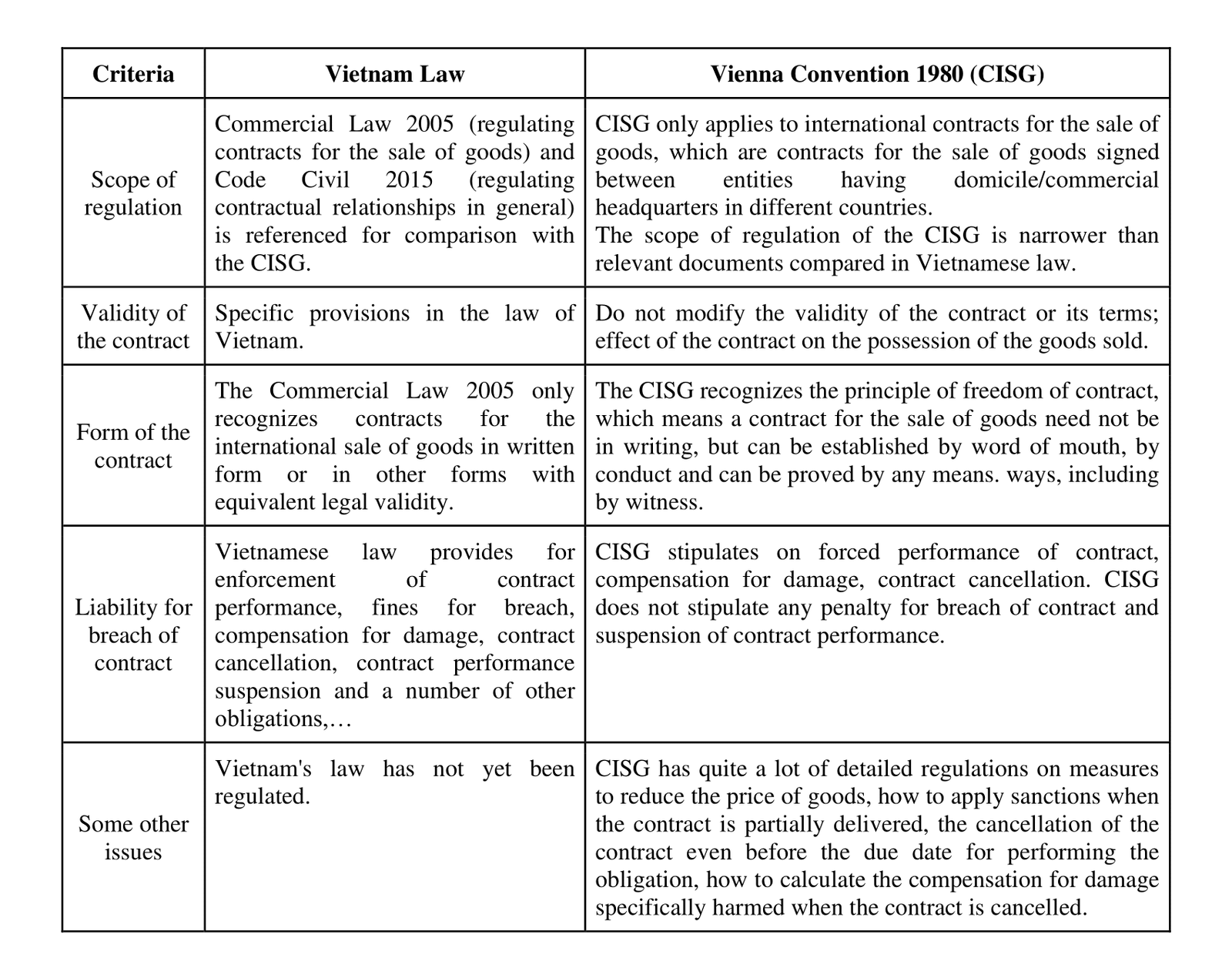Benefits for Vietnamese businesses when applying CISG
Firstly, Vietnamese businesses will save costs and time in negotiating the choice of law applicable to the contract.
When Vietnam becomes a member of the 1980 Vienna Convention, Vietnamese traders and their partners in 93 other member countries around the world will have a unified legal framework that is automatically applied for their contract.
Secondly, it helps reduce difficulties and costs when the law selected to apply to the contract is foreign law.
In the event that a foreign law must be applied, Vietnamese traders may face legal risks and time consumption to learn or high expense of hiring a legal consultant to interpret that foreign law. Meanwhile, the cost and time to learn CISG is much less than that of foreign law, because consulting businesses/lawyers can consult the CISG database systems easily and for free.
Thirdly, parties may avoid having to resort to conflicting rules in international law to determine the law applicable to the contract.
Conflicting rules often differ from country to country, so their application often leads to unpredictability about the source of applicable law, causing considerable difficulty for the disputing parties. It is noteworthy that the CISG applies only if the parties to the contract do not otherwise agree and the CISG does not impose or affect the parties’ discretion in choosing the applicable law.
Fourthly, parties will get a modern, fair and safe legal framework for the performance of contracts for the international sale of goods and have reasonable grounds to settle disputes if they arise.
The Vienna Convention of 1980 has provided solutions to solve almost all legal problems that may arise in the process of concluding and performing contracts for the international sale of goods such as: legal value, effective term force of the offer or of the acceptance of the offer; the rights and obligations of the seller and the buyer; the measures that one party has when the other party breaches the contract…
Fifthly, the performance of the contract by the parties on the basis of a unified common law (which is not the national law of either party) creates legal equality between the two parties.
According to the assessment of jurists and experts in international commercial contract law, the provisions of the Vienna Convention of 1980 also create equality of content between the buyer and the seller in the contractual relationship. Therefore, whether a seller or a buyer, this Convention becomes an effective and safe legal framework for resolving disputes that arise.

Cases of applying CISG to contracts for the international sale of goods in which one party is a Vietnamese enterprise
According to the provisions of CISG and the practice of contracts for the international sale of goods, there are 04 (four) cases where CISG is applied:
(1) When the parties have their place of business in CISG members’ countries (under Article 1.1.a of the CISG); or
(2) When according to international judicial rules, the applicable law is the law of a CISG member state (under Article 1.1.b of the CISG); or
(3) When the parties choose CISG as the law applicable to their contract; or
(4) When the dispute settlement body selects the CISG as the applicable law.
According to case (1) above, from the time CISG takes effect in Vietnam (January 1, 2017), contracts for international sale of goods entered into by Vietnamese enterprises will be governed by CISG in case the other party has a place of business in a country that is a member of the CISG. This is the most common CISG application. For example, a contract between a Vietnamese enterprise and another party based in France, Germany, Japan, China, Korea, Canada, Australia, etc., is governed by CISG, unless the parties to the contract agree to exclude the application of the CISG.
CISG can also be applied to international contracts for sale of goods in which one party is a Vietnamese enterprise according to the second case above. This usually occurs when one party to a contract is based in a CISG’s member state while the other is based in a country that is not a member of the CISG.
Based on the principle of free choice of law applicable to international contracts for sale of goods in particular and to civil contracts in general, which is widely recognized in the international justice of many countries, the parties to the contract, whether based in a member state or not, has the right to choose the CISG as its applicable law. This is the third case where CISG is applied.
The fourth case is quite common when a national court or international arbitration decides to apply CISG such as:
- The law applicable to contracts for the international sale of goods when the parties to the contract have not chosen the law governing the contract;
- An additional source of law for a national law has been selected.
Comparison between CISG and Vietnamese law on contracts for sale of goods

Minh Duc













